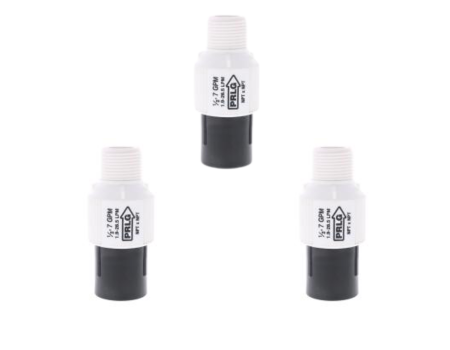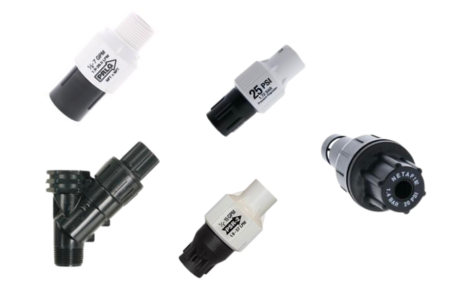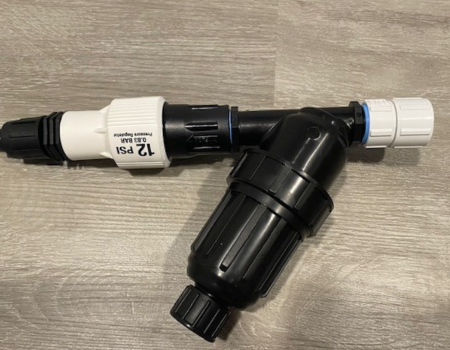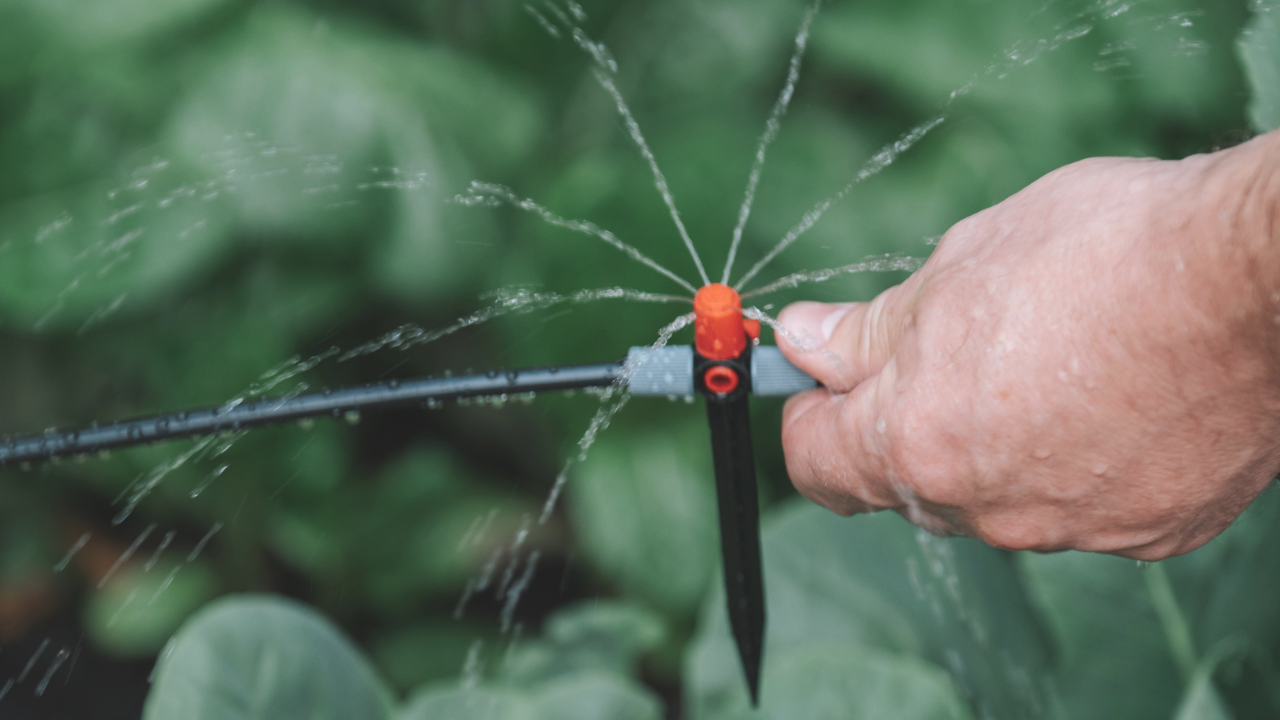Do I Need A Pressure Regulator For Drip Irrigation?

We test and review gardening and other outdoor products based on an independent, multi-point methodology. If you use or links to purchase something, we may earn a commission. Read our disclosures.
So you are looking to set up a drip irrigation system. You got the tubing, the fittings, maybe you even installed some button drippers.
You are ready to go.
Then you look back at your faucet and realize something: you don't have a pressure regulator. You start to think, 'Do I need a pressure regulator for drip irrigation?'
If you're a regular average Joe, homeowner, and hobbyist gardener, let me answer this question as succinctly as possible so you don't have to read the rest of the article:
Yes.
If that wasn't good enough for you, I'll explain more below.
What Is A Pressure Regulator?
I realize some of you may know nothing about physics. Personally, since I left college, I haven't thought much about it either.
So let's take the definition of a pressure regulator from people far smarter than us:
"Pressure Regulator is a mechanical device designed to regulate system flow pressure in response to upstream or downstream pressure changes."
Okay, let's not get too scientific here - we are gardeners!
But now we know why we could potentially need a pressure regulator for a drip irrigation system. You need one to get your drip irrigation system at the optimal operating pressure range.
Why Do We Need A Pressure Regulator For Irrigation?

Let's think about this for a second. Most of us are homeowners.
In fact, go outside and turn the faucet on to your garden hose. What happens? I bet water pours right out of there, right? Just guzzles right on out?
Now think about all the YouTube videos you've watched of drip irrigation, in particular button drippers or other drip emitters. Does the water pour right out? No.
It quite literally drips out.
So how do we turn that hard-charging (high pressure) water flow from the tap into that soft yet elegant (low pressure) drip? Drip irrigation pressure regulators.
Normal Water Pressure
The normal water pressure for any home varies between 45 to 80 psi. If your water pressure is below 40 psi, then it's considered low. If it ranges between 20 to 30 psi, your water pressure is very-low.
So you can expect water to come out of your hose faucet at a minimum 40 to 45 psi. Last thing you need is a steady stream of high pressure water flow right into your drip system.
That is simply way too much for a drip irrigation system.
What Pressure Is Needed For Drip Irrigation?
The pressure needed for drip irrigation is no more than 30 psi. Most drip irrigation systems range between 10 to 30 psi and anything higher than 30 psi could damage your system.
At too high of pressure, you can start to blow out drip emitters or distort other fittings that simply weren't designed for high pressure. If you run the pressure higher than that, you even risk damaging the lines.
Spare yourself the headache and get the pressure regulator. Hopefully, you are beginning to understand the criticality of needing one.
How Does The Pressure Regulator Work For Drip Irrigation?

This paragraph is for the scientifically inclined. If you want to know how the pressure regulator works, then go ahead and keep reading. If not, you can just skip.
A pressure regulator is made of a few specific components:
- Inlet
- Fixed seat
- Throttling tem
- Diaphragm
- Spring
- Outlet
Water flows in through the inlet. It then goes around the fixed seat and through the t-stem. The t-stem is a hollowed-out cylinder that attaches to the diaphragm located at the outlet.
The diaphragm activates when high-pressure water flows through it, which causes the spring to compress, pushing the t-stem toward the fixed seat.
The opening near the seat will close just enough to release the regulated amount of water pressure.
Do I Need A Pressure Regulator For Drip Irrigation?

I think it's safe to say that you need a pressure regulator for drip irrigation. The amount of water pressure that comes in from city water is too great for home drip irrigation systems. If you don't get one, you risk damaging the system.
The good news is most drip irrigation kits come with a pressure regulator. They take the guesswork out of it (probably because most people do no know it).
Nonetheless, if you are thinking about a drip line vs drip tape irrigation system, or you are buying parts separate from the kit keep in mind the following:
- 25 psi regulators work best in most drip systems (drip line irrigation system)
- Maximum 15 psi regulators work best for thin walled drip tape
Drip tape is a thin-walled tubing, so you must make sure you buy a different regulator if you go that route.
Types of Drip Irrigation Emitters FAQs
Before you go...
Drip systems might seem complicated but they really aren't. Sometimes the best way to learn how to use them is to just take action and get one. If you don't know which one to get, be sure to check out our Best Drip Irrigation Systems guide. We do a roundup of the best ones on the market today.

Carl Anderson
Carl Anderson is an avid outdoorsman with a keen interest in writing about and reviewing tools. He has over 20 years of writing experience and the only time he isn't feverishly typing away at his computer is when he's outside in nature working on his projects. You can learn more about him here.
Join our community!
Join to receive guides, insights, and the latest gardening deals!
